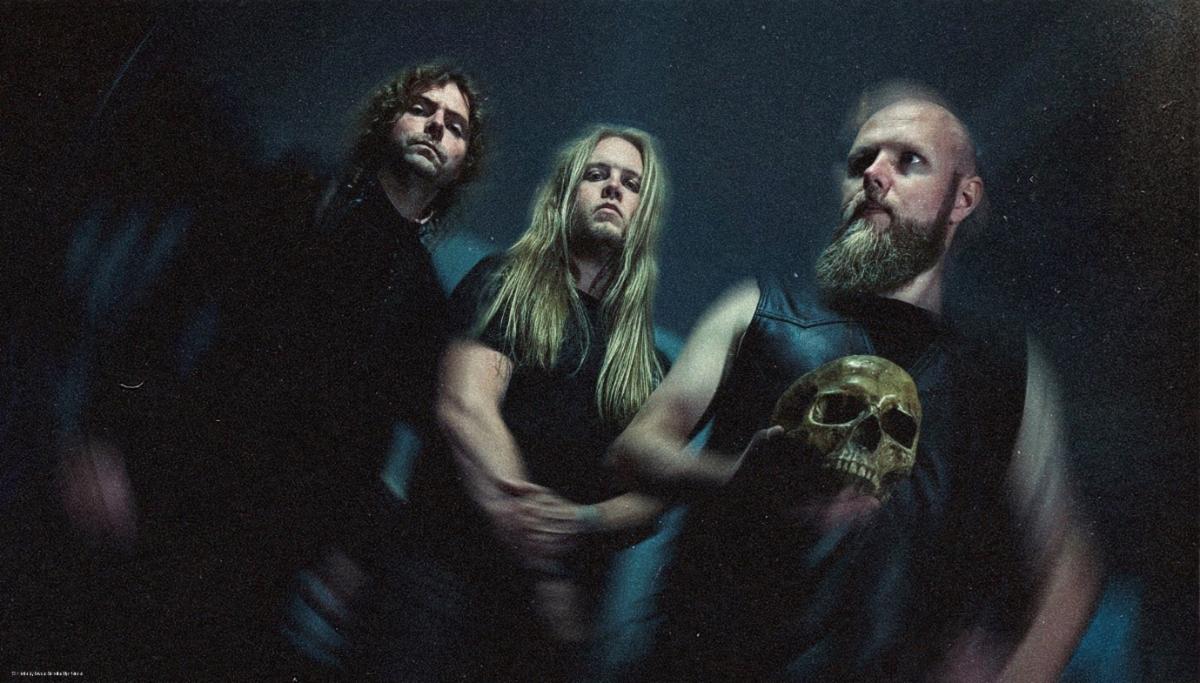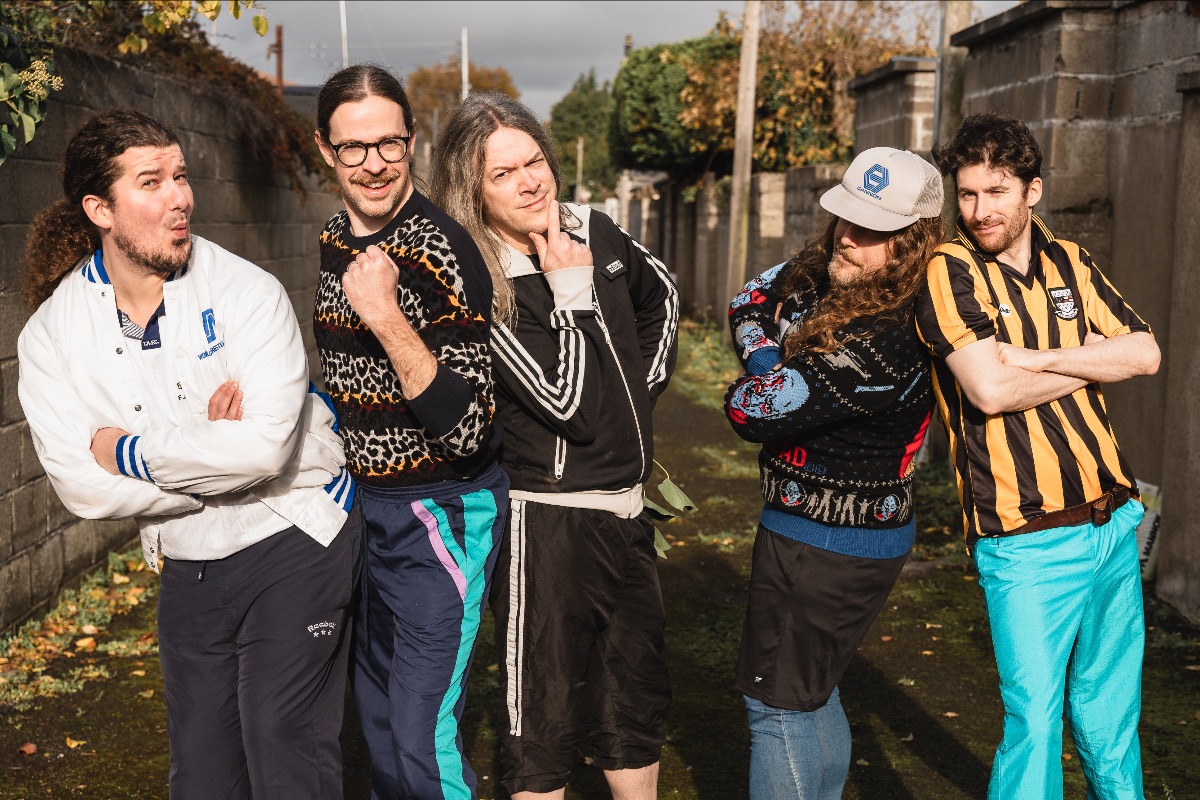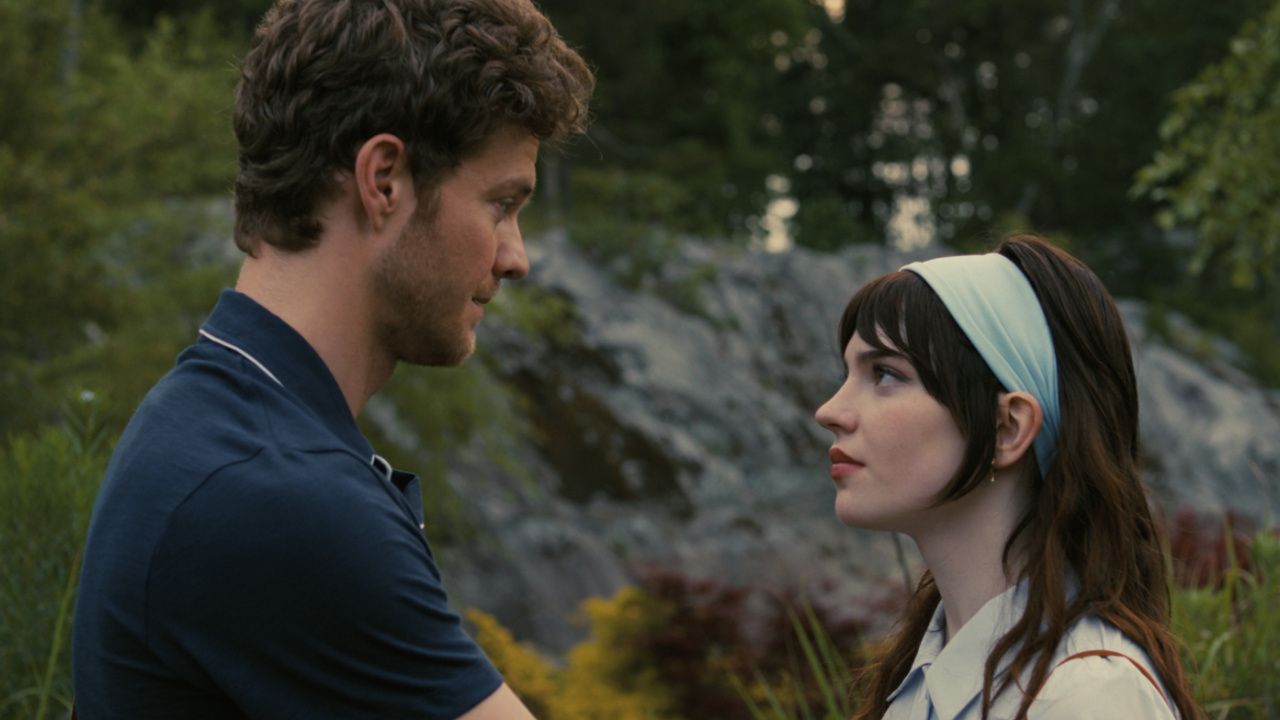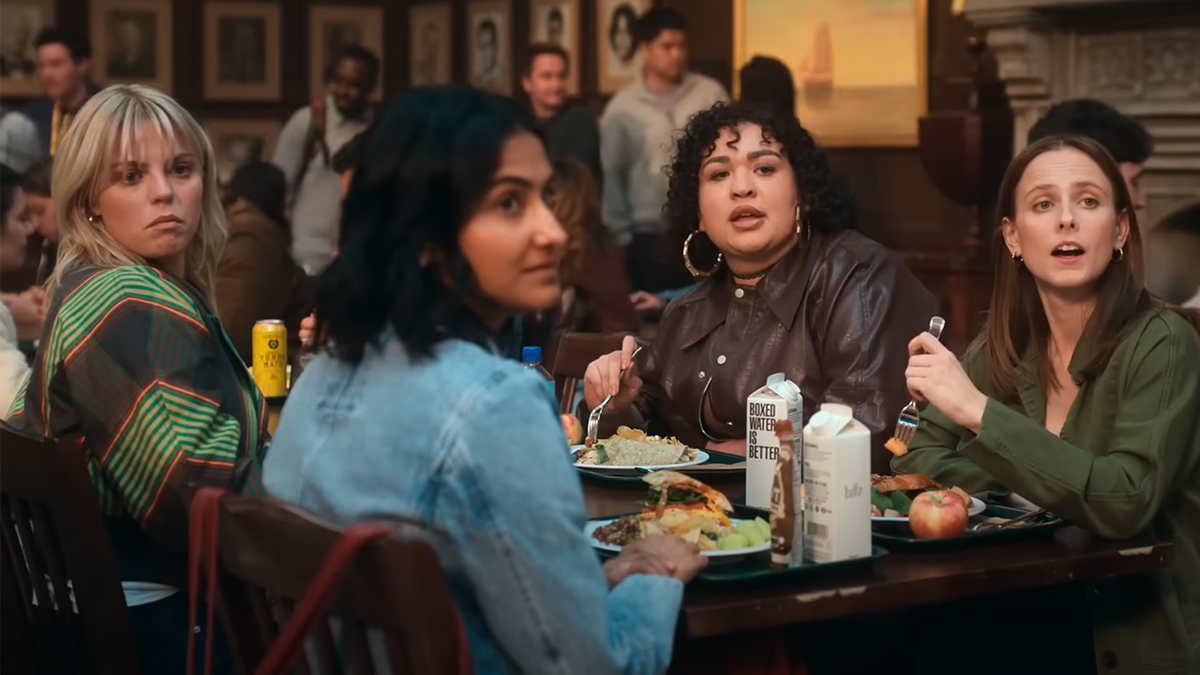It’s hard to pinpoint when, exactly, the walls begin to warp. It could be from sleep deprivation, burn-out delirium, or, perhaps most soundly, the steaming cup of tea that Lila Ramani clutches in one of Crumb’s earliest videos, “Locket,” as she saunters around a house party, feeling the effects start to unfurl. Before long, the other members of the jazzy psych quartet — bassist Jesse Brotter, keyboardist Bri Aronow, and drummer Jonathan Gilad — are riding a similar frequency while a swirl of bright keys and spacey synths take hold, offering the optimal introduction to their transcendent world.
Crumb are six years removed from that video, but its exceeding strangeness felt specific to a niche category of onlookers, attracting the very people who embody the band’s sprawling sense of wonder, and then gobs more, as it accrued over 50 million views. Those psychedelic adventures admittedly haven’t influenced the band’s songwriting as much as its visual suggests, but for thousands of like-minded spirits — ones who torrent MP3s from obscure internet blogs and lose hours in YouTube rabbit holes — that upload signaled a revelation. People saw themselves in their jazzy gauze. Most endearingly, at its crux, Crumb’s music invites living room seclusion, slipping on headphones and sinking into head-bobbing solitude as the clock stretches past midnight. When this gets mentioned, the band laugh. “You’re not alone in that sentiment, but you are alone,” Gilad says.


On a Monday afternoon in mid-July, that feeling spills across our Zoom call. “I found this blog recently that has a bunch of ripped cassettes from Southeast Asia in the ’70s for download,” Ramani shares. “I got kind of obsessed with it and downloaded, like, 20 that don’t exist on streaming.” As their upcoming headlining tour looms, the Crumb bandleader is sitting down with the rest of the members at Parkview Diner in Gravesend, Brooklyn after snapping photos around Coney Island earlier in the day. Soon, the band will stop in over two dozen cities in support of their third and best album, AMAMA, a slick, exuberant collection of psych-pop that revolves around upbringing and finding home after years of living nomadically. As their plates are cleared, the members reflect on the music that shaped them.
“My parents played the same two albums over and over again my entire childhood. [One] was Cesária Évora’s Café Atlantico. Literally every time they cooked dinner, they would play that album,” Ramani laughs. The other was After the Gold Rush by Neil Young, whose ability to spin intimate epics out of everyday realities feels entrenched in her own songwriting. Her father also played in a Malaysian Bee Gees cover band.


“I feel like all we had in rotation was ‘The Girl From Ipanema’ and Deep Purple. Aside from that, I was given pretty much free rein to discover music by myself,” Gilad says. Aronow, on the other hand, was introduced to an abundance of folk rock from the ’70s, guided by giants like Carole King and Young. Her father listened to classic rock but would “get pushed out by [her] mom,” who favored a lighter touch. “We listened to some quieter things in the car rides,” she recalls.
For Brotter, whose dexterous playing can go from thumping groove to shredfest, jazz wasn’t a reverie he uncovered in a college dorm — it began right in his kitchen. “I remember a lot of cooking music at my house was the Louis Armstrong and Ella Fitzgerald collab album, and I think those positive early music listening experiences of vocal, pop-jazz music from the ’30s and ’40s was my way in,” he says. “That’s still my favorite stuff — Duke Ellington and more sentimental [songs] — and I think later came the more progressive bebop and ’60s/’70s jazz that we were listening to more at the time of becoming a band.”


It’s only fitting, then, so many years away from their gateway experiences, that Crumb’s own music refracts all of those disparate, far-flung influences. Wandering between psych, pop, and jazz, the four-piece create bleary-eyed, nocturnal head-trips that take pleasure in intense, frequently absurd experimentation. There are pitch-shifted vocals, spam calls used as samples, screechy sax, and beyond. Together, it can make you feel like you’ve ascended to the clouds while being wary that it could all fall away, guided by Ramani’s languid, spectral voice.
Yet, if you let it, the songs can also make you crave the familiar walls of your childhood bedroom. Ever since Jinx, the band’s woozy, self-released debut album, Ramani’s family casts a strong presence, with her relatives often popping up within the lyrics. On “Gone,” nestled in the front half of their sophomore LP, Ice Melt, the lyrics reference an elderly woman losing contact with reality, which Ramani revealed, in a Reddit AMA, was about a grandparent who passed away while they were recording. It’s become an understated, recurring theme in their records. Their latest album, AMAMA, however, drops the subtlety, offering a clear and heartfelt tribute to her grandmother, Leela, her namesake, that comes alive in the title track. It features a sample of Leela singing in Malayalam in the opening seconds, originating from a WhatsApp video that was sent in a family group chat, where Ramani zipped the audio and diced it up for the song. Soon, their voices, sundered by the transatlantic, twist together, immortalized on wax.


As touching as that moment is, though, it’s difficult for Ramani to definitively point to her grandmother as a strong influence in her life. “Yes and no,” she considers. “We have a very distant relationship because she lives on the other side of the world, and I only get to see her every couple of years. She also doesn’t speak English, so it’s not a traditional grandma relationship where you grew up with them and have your lives intertwined.” If anything, the song proves that music can link us, no matter the circumstance, widening understanding and empathy to form greater bonds.
Threading together strains of the past and present to create something entirely new is the album’s central tenet. In “AMAMA”’s accompanying video, vintage footage of Carroll Gardens flashes between modern shots, creating an alluring contrast between old and new. To the north lies Ramani’s old neighborhood Gowanus, and specifically the canal, which “creeps its way into [their] music a lot,” she says, beginning with their first music video. When asked to describe the area, their answer comes off like a deranged Mad Lib.


“Very unnatural landscape. Industrial wasteland with creatures that probably shouldn’t be there. Three-eyed fish,” Ramani offers.
“One of the most polluted waterways,” Aronow adds.
That isn’t hyperbole. For years, the canal has acted as a dumping ground for toxins, inspiring its own eerie lore, like harboring stuck dolphins and dead bodies. Even so, the band find ways to subdue the darkness and tap into playful levity — a sample of a police radio scan about a flock of geese trying to find their way home; an homage to a turtle they accidentally ran over with their tour van — that complements the sleek complexity and upbeat unpredictability that flourishes across its dozen tracks. It seems, more than ever, that their early days at Tufts University, where they initially came together to flesh out Ramani’s songs, are disappearing into the distance as they become more mature, flexible, and prone to taking risks.


“Sleep Talk,” for one, makes an intriguing pivot, beginning as a moony cut about moving in together with a partner but then, following Ramani’s promise to “take it slow,” suddenly increases in tempo. Taking cues from electronica, the change-up was intentional from the start. “I remember when I was making the early demo for it, I pictured that section having a really abrupt double time or some out-of-the-blue switch,” she shares. “Then it was a tempo change, which felt crazy at time, but I think we thought it was crazier than it actually is.” Meanwhile, “Genie,” a six-minute spell whose unremitting groove becomes increasingly intoxicating, stands as a spotlight for Gilad’s drumming. “That was definitely one where repetition was intentional and just these cycles, and stopping and then repeating again was the theme — like a meditation of sorts,” Ramani says.
Over the last few years, Crumb have been gifted countless “cursed objects” from their fans while on the road. One was a metal skull, another a necklace. When they were in Mexico, people threw plush dolls onstage, which the band kept. Lately, they’ve been busy rehearsing, preparing for disorienting time zone changes and disconnection from home when they hit the road in a couple of weeks — joined by L’Rain, Discovery Zone, and Vagabon on varying dates. “Once you’re on the road for more than a week, you have to cling onto [routines] to feel normal, like moving your body, talking to people from home, or watching a movie that you like,” Aronow suggests. More than ever, stability, rather than drifting from one city to the next, is something Crumb long for, reveling in feeling grounded and secure. On AMAMA’s opening track, “From Outside A Window Sill,” Ramaini, in a featherlight cool, sings, “Home is what I want and what I need.” It’ll be a while until Crumb can return home again, but the feeling remains.
























![SHADOW OF THE TALISMAN – What Is Real? (OFFICIAL MUSIC VIDEO) [Alternative Metal] SHADOW OF THE TALISMAN – What Is Real? (OFFICIAL MUSIC VIDEO) [Alternative Metal]](https://i.ytimg.com/vi/W1RaIeMod5s/maxresdefault.jpg)




